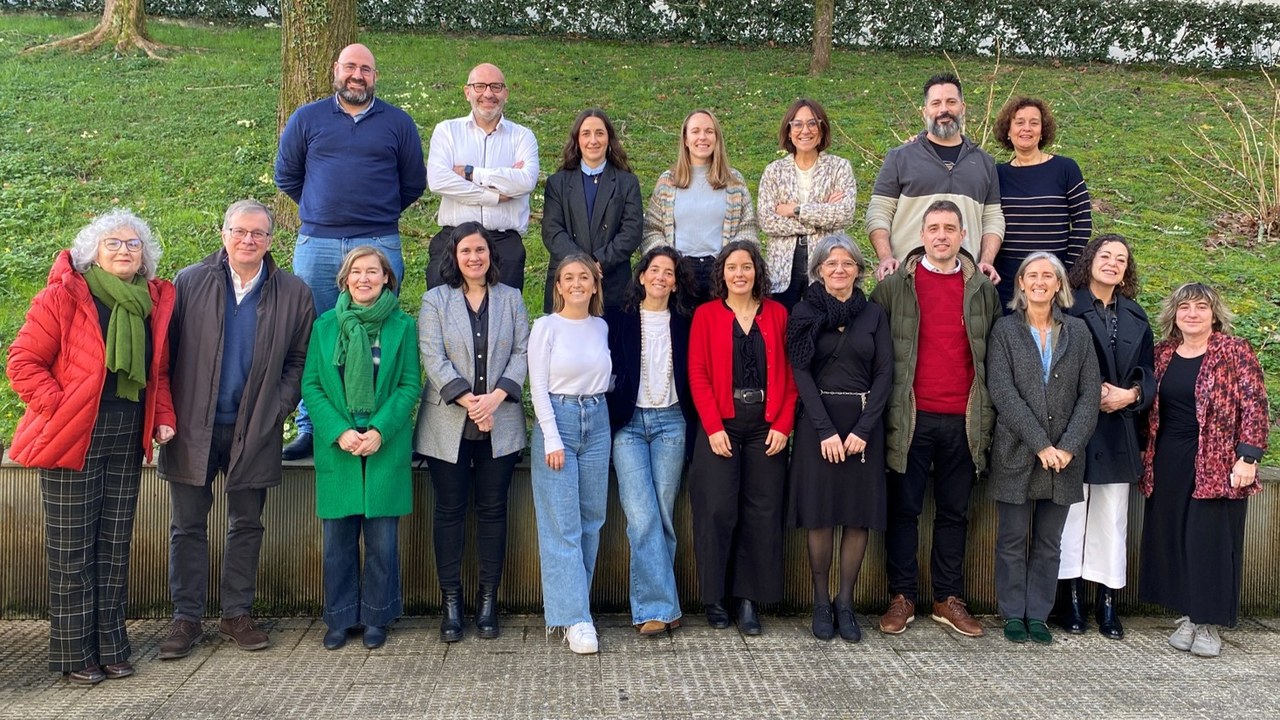SPRI group and AECC (Bizkaia and Gipuzkoa) meet with the consortium developing an innovative microchip to study biliary cancer
Representatives of Leartiker, BioBizkaia, BioGipuzkoa, DIPC and UPV/EHU met with SPRI Group and AECC (Bizkaia and Gipuzkoa) to discuss the progress of the BIL-CHIP project, an innovative microchip that simulates the cellular complexity of the ecosystem of biliary tumours at the nanometric scale and which could speed up the evaluation of new cancer therapies

On the occasion of cholangiocarcinoma awareness month, The SPRI Group - Basque Business Development Agency and the Spanish Association Against Cancer (AECC) Bizkaia and Gipuzkoa visited Donostia International Physics Center (DIPC) to meet with the consortium developing the BIL-CHIP project, supported by the Elkartek programme of the Basque Government. BIL-CHIP is an innovative experimental model that allows the study of cancer on a microchip that simulates tumour biology at the nanometric scale.
Representatives of SPRI and AECC had the opportunity to learn about the latest advances in this study, which is being conducted by different research groups led by Prof. Jesús Bañales from BioGipuzkoa, Prof. Patricia Aspichueta from BioBizkaia, and Dr. Leire Echeverria from Leartiker, with the participation of DIPC and the Departments of Physiology and Medicine at the University of the Basque Country (UPV/EHU).
The microfluidic chips being developed by this consortium enable the creation of a controlled and precise microenvironment that includes various components of the extracellular matrix, such as collagen, as well as tumour and immune system cells, in order to replicate the complex conditions in which tumours develop in the human body. This approach has the potential to accelerate our understanding of the mechanisms underlying tumour growth, metastasis and response to treatment, without the need of animal testing.
The BIL-CHIP project aims to research, prototype and validate an on-chip model of cholangiocarcinoma (CCA), a highly aggressive type of cancer that originates in the cells of the bile ducts. The project is expected to produce a personalised 3D on-chip model of cholangiocarcinoma based on the characteristics of each patient. This model offers huge potential for evaluating new cancer therapies.
The DIPC group participating in this study, led by Ikerbasque researcher Iván Rivilla, has extensive experience in the design and synthesis of new chemical entities and their photo-physical properties; this will be crucial for the analysing of the anti-tumour effect of new compounds applied in the BIL-CHIP device.
The development of BIL-CHIP is expected to enable significant advances in nanotechnologies by fostering research and development of new materials and microfabrication technologies, which could provide innovative solutions in fields such as medicine, biotechnology or industry.
